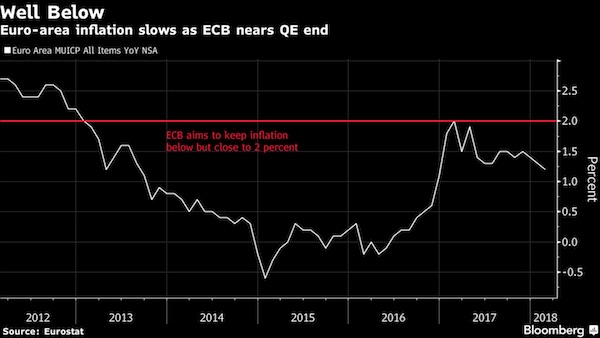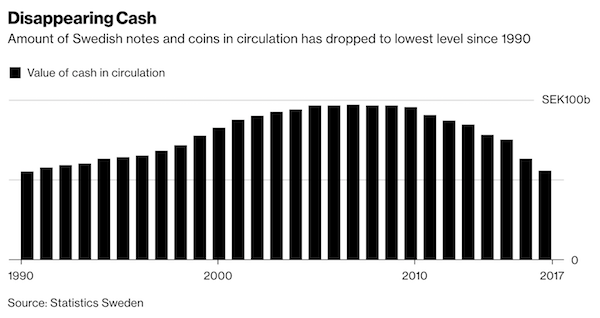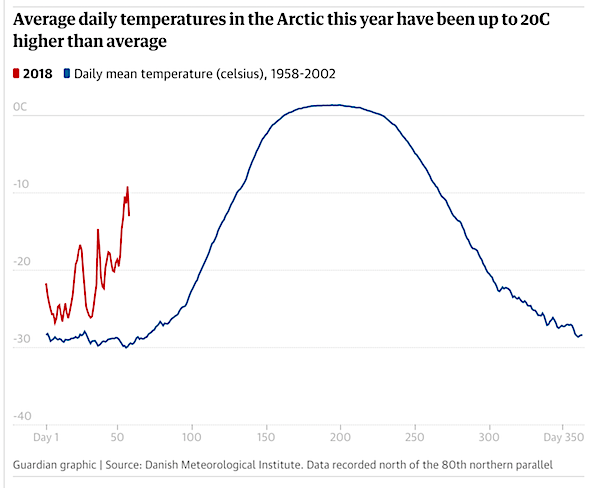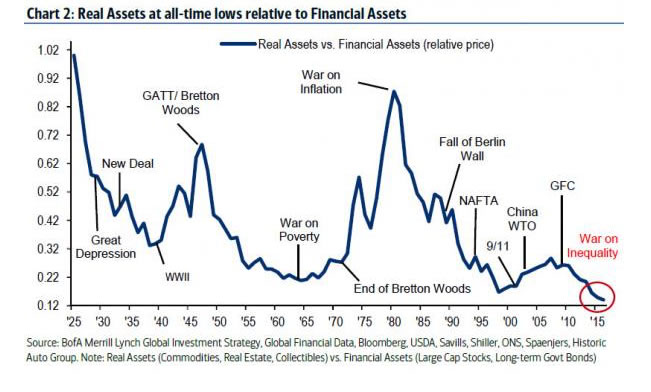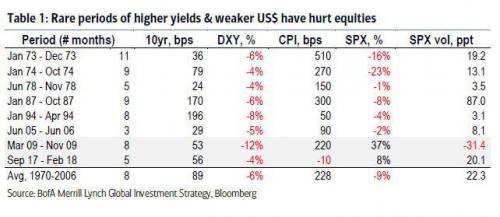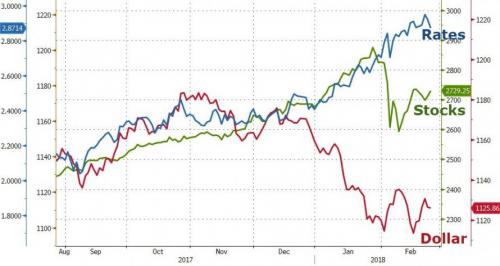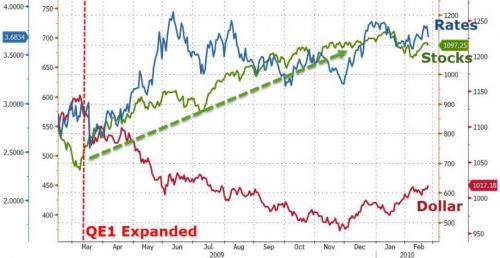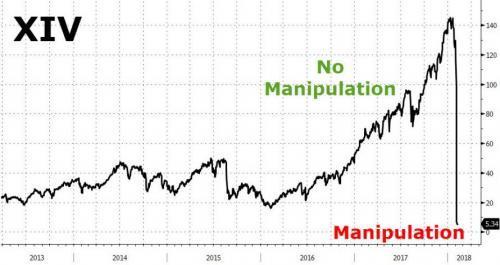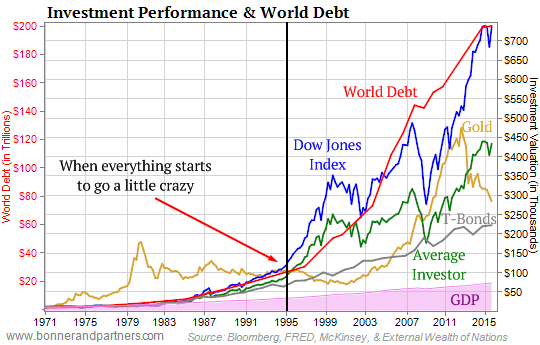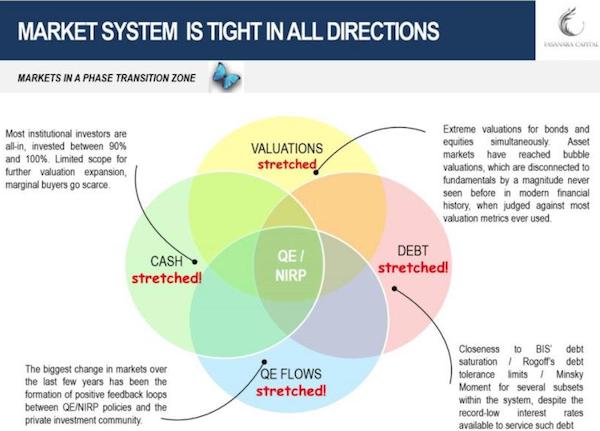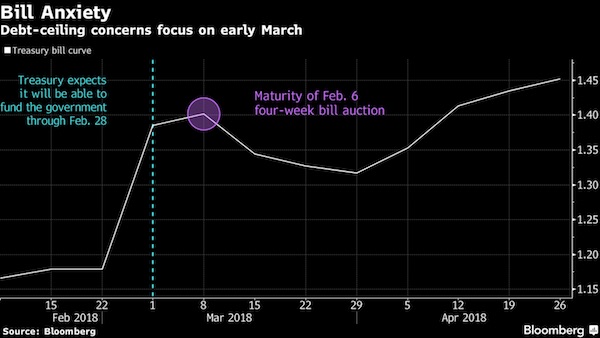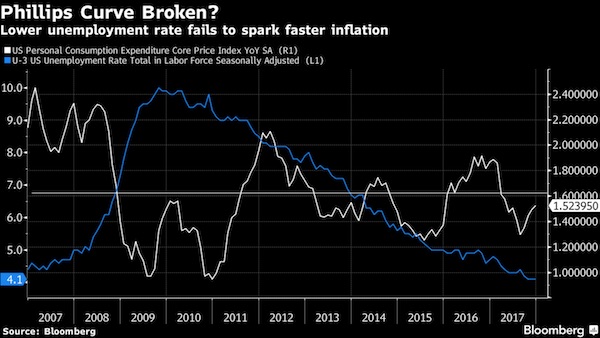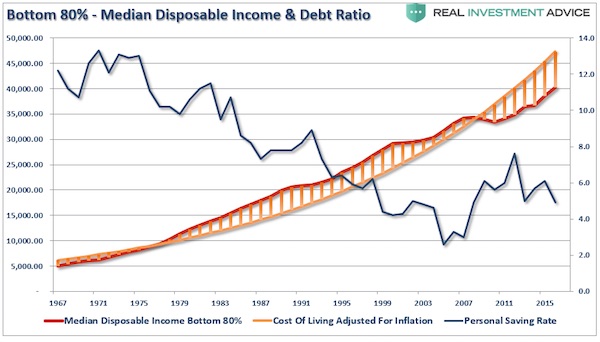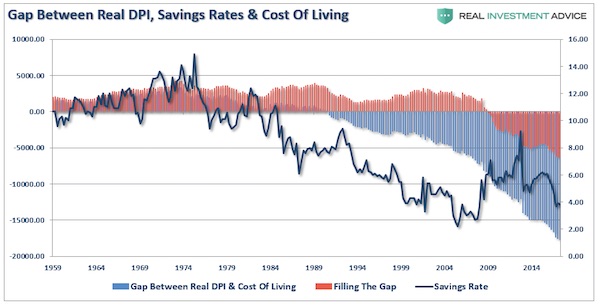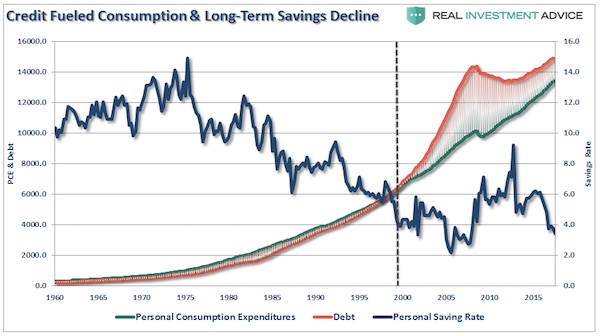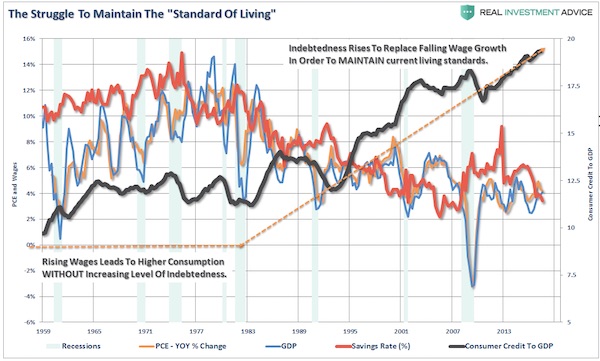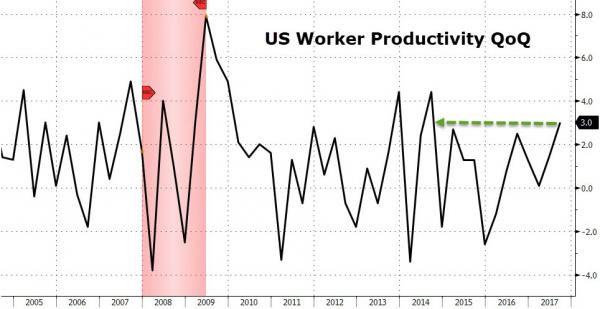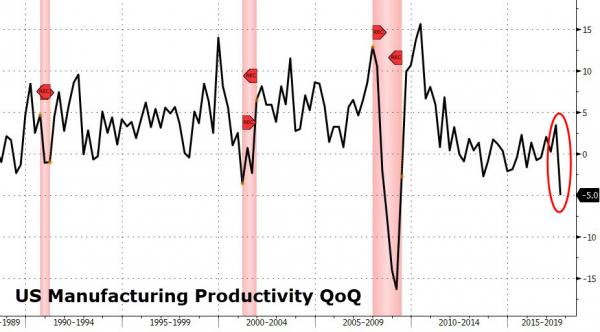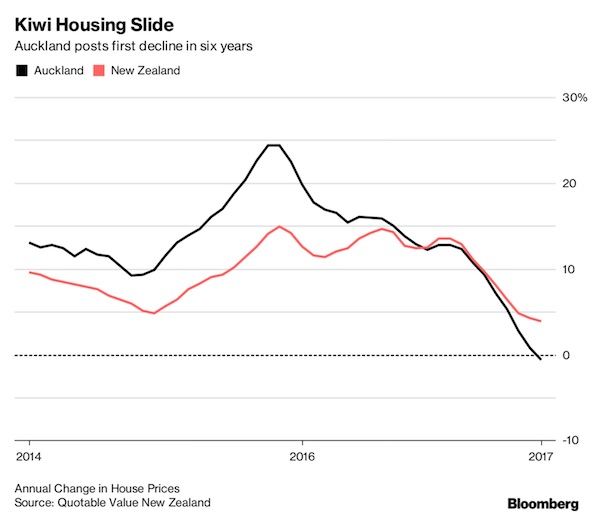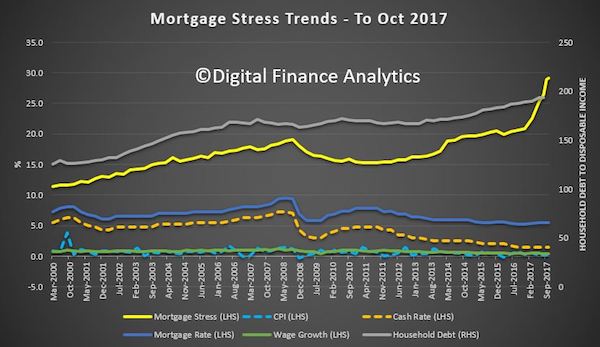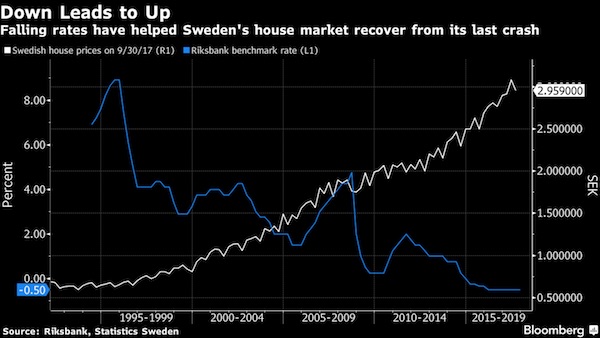
Paramount Theater, Times Square NYC 1956

I don’t normally like to open Debt Rattles with politics, but this leads the news.
Trump’s stance here should be a huge opening for Democrats, but it can’t be: they‘re too far gone in their demonizing of him. So if nothing happens -again- you’re going to have to wonder whose fault that is.
Note: a first reaction to a school shooting is easy, but you are talking fiddling with about the US constitution here.
• Donald Trump Stuns Allies By Signalling Backing For Tighter Gun Control (G.)
Donald Trump has repeatedly endorsed a series of gun control proposals that put the Republican president at odds with the National Rifle Association and stunned lawmakers within his own party. The president made the remarks during an extraordinary, hour-long White House meeting on Wednesday with congressional Republicans and Democrats who are under pressure to address gun violence in the aftermath of the massacre at a Florida high school earlier this month. During the meeting, Trump called for a “beautiful” comprehensive bill that would expand background checks on gun purchases, remove guns from the hands of the mentally ill, bolster security on school campuses and restrict young people from purchasing certain weapons.
Within hours of the meeting’s conclusion, conservatives and some Republicans turned on Trump, who was elected with broad support from the gun lobby and claimed on Wednesday that the National Rifle Association had “no bigger fan”. Breitbart, the far-right news organization that fanned the flames of Trump’s rise, denounced the president as a “gun grabber” who “cedes” to Democrats. [..] Trump, who ran the meeting like a boardroom CEO, pointing at lawmakers for updates on their legislation, called on Congress to be “very strong” on background checks, repeatedly offering his support for a plan that failed to pass the Senate in April 2013, months after a gunman killed 20 young children and six staff members at Sandy Hook elementary school.
“You have to be very, very powerful on background checks. Don’t be shy,” Trump said during the televised session. He added: “I’d rather have you come down on the strong side than the weak side. The weak side is easier to do.” Two senators, Democrat Joe Manchin and Republican Pat Toomey, both of whom attended the meeting, plan to reintroduce their bill that would have imposed universal background checks for commercial gun purchases, including at gun shows and over the internet. 84% of Americans favor such a law [..] In a surprising exchange with Toomey, Trump asked if his measure included a provision to raise the age to buy assault weapons from 18 to 21. Toomey replied that it did not, and Trump shot back: “You know why? Because you’re afraid of the NRA.”
Trump rejected a demand by conservatives in the House that this so-called Fix Nics bill be paired with controversial concealed carry legislation, which is favoured by the NRA and would loosen restrictions by enabling gun owners with concealed-carry permits in their home states to take their firearms across state lines. “If you add concealed carry to this, you’ll never get it passed,” Trump told Steve Scalise, the House majority whip, who was last summer by a gunman targeting a congressional baseball practice. “Let it be a separate thing.” Trump repeatedly berated his Republican colleagues, accusing them of being afraid of the NRA, and appeared to take pleasure in stating his willingness to take on the gun lobby. “Some of you people are petrified of the NRA. You can’t be petrified,” he said.

And they get their funding there.
• Members of Congress Are Petrified of The NRA, Says Trump (Ind.)
President Donald Trump has accused members of Congress of being afraid of the National Rifle Association (NRA), as he called for an increase in the minimum age for buying a rifle. “[The NRA] has great power,” Mr Trump said at a bipartisan meeting with members of Congress on school safety. “They have great power over you people. They have less power over me. I don’t need it. What do I need? But I’ll tell you, they are well-meaning … We have to do what is right.” Members of Congress have again been anxious to find a solution to prevent mass shootings after an alleged 19-year-old gunman on Valentine’s Day open fired at Marjorie Stoneman Douglas high school in Florida, killing 17 people.
On the first day students of the school resumed their lessons following the shooting, several legislators gathered at the White House to discuss school safety and legislation aimed at combatting gun violence. One such proposal, drafted by Republican Senator Pat Toomey and Democratic Senator Joe Manchin, is primarily focused on expanding background checks for gun purchases. Mr Trump asked Mr Toomey about a proposal to raise the age limit for purchasing assault weapons from 18 to 21, a measure the NRA does not support.
“Now, this is not a popular thing in terms of the NRA, but I’m saying it anyway,” Mr Trump said. “Right now, you have to wait to buy a handgun until you’re 21, but you can buy the type of weapon used in a school shooting at 18. I can say the NRA is opposed to it… These are great patriots, they love our country, but that doesn’t mean we have to agree on it.” Mr Toomey said the age issue is not addressed in his bill with Mr Manchin. “You know why, because you’re afraid of the NRA,” the President responded.

This fits in nicely with the gun issue. Scott “Dilbert” Adams’ view on Twitter: “P�e�r�s�u�a�s�i�o�n� �P�h�a�s�e� �1� �i�s� �c�o�m�p�l�e�t�e�.� �H�e�’�s� �c�o�m�i�n�g� �f�o�r� �D�e�m�o�c�r�a�t�s� �n�e�x�t�.�”
• Where Did The Republican Trump-Haters Go? (BBC)
Once upon a time there was an active, vocal resistance among conservatives to the prospect of Donald Trump’s presidency. One year in, and the signs of dissent are rapidly fading. On Friday morning at the Conservative Political Action Conference on the outskirts of Washington, DC, Donald Trump took the stage and reminded the packed hall just how far he’d come. “Remember when I first started running?” the president asked. “People said, ‘Are you sure he’s a conservative?’ I think I proved I’m a conservative.” Mr Trump then launched into nearly an hour and a half of his trademark campaign-style oratory, often acknowledging that he was deviating from his “boring” speech text. On script and off, however, it was clear his intended objective was to drive home the point that he has governed as a true conservative.
He boasted of his tax cuts, right-wing judicial nominations, regulatory rollbacks and defence of religious liberty. Those are the sort of accomplishments attendees of this annual conference of young Republicans, grassroots activists, party functionaries, conservative media pundits, assorted merchants and special interests longed for through eight years of the Obama presidency, and now they’re getting. That’s got to make them thrilled, right? Well, sort of. According to straw poll of conference attendees, 93% approve of the job Mr Trump is doing in the White House. It’s a number not too far from the 80% of Republicans across the US who continue to tell pollsters they support the president. That, as the president acknowledged, was not always the case.
In 2016 – at the beginning of his long march to the Republican nomination and the presidency, Mr Trump abruptly cancelled an appearance at Cpac when faced with the prospect of a walkout from “never-Trump” conservatives. [A 2015] straw poll had Mr Trump as the presidential pick of just 3.5% of attendees, in eighth place, far behind libertarian-leaning Senator Rand Paul’s 25.7%. Another Republican presidential hopeful at that conference, former Texas Governor Rick Perry, would just a handful of months later describe Mr Trump’s politics as “a toxic mix of demagoguery and mean-spiritedness and nonsense” and call his candidacy a “cancer on conservatism”. Last week, Mr Perry – now Mr Trump’s energy secretary – was back at Cpac, referring to himself as “footsoldier in the army”. Donald Trump’s army, that is.

Should that say “predicted after the fact”? (From Bill Bonner, Mish and Semper Augustus)
• This Has Predicted Every Market Crash in History (Bonner)
“Buy the dip” has worked for the last 38 years. And now, investors are more than 100% convinced that it will work again. But they are wrong. Semper Augustus: “Every major stock market decline and every recession in the last 100 years was preceded by the Federal Reserve raising short-term interest rates by enough to provide the pin to prick the balloon. Note the emphasis on every. Yes, there have been periods where the Fed raised rates and a recession didn’t ensue. Everyone knows the famous saying about the stock market having predicted nine of the past five recessions! That may be true, that rising rates don’t necessarily cause a recession. But as an investor, you must be aware that every major stock market decline occurred on the heels of a tightening phase by the Fed. More importantly, there have been no substantive Fed tightening phases that did not end with a stock market decline”.
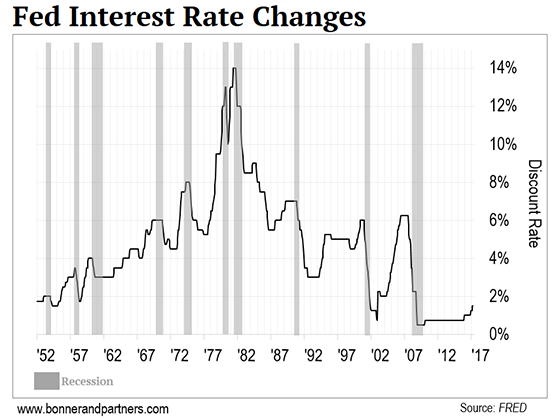
Going back to 1950, every U.S. recession (gray shaded area) has been preceded by the Fed hiking interest rates
A little debt may be a good thing; a lot of it is not. At a certain point, you have more than “too much debt,” and it becomes toxic. Where exactly in the cycle we are, we don’t know. But our guess is we are already way beyond the place where we are fully indebted. This is an economy built on debt. The whole capital structure – stocks, bonds, and real estate – now depends on excess debt… and more of it. In a correction, the only way to stop stock prices from falling and the economy from shrinking is to bring in some more debt. But when you do that a few times, you are soon beyond Peak Debt… which is to say, you’re way over the legal limit.
Debt has been growing three to six times faster than income for more than an entire generation. This makes the old 1.5-to-1 ratio of debt to income seem quaint. It is now 3.5-to-1 nationwide. Which is why deficits still matter. Every penny in debt that we add now is a penny that cannot be repaid, not by any plausible combination of economic projections. Because there is no way to “grow your way out of debt” when your income is falling while your debt is still increasing. Instead, you have to suffer the indignities of a correction, including a major reset in the stock market. That’s what happens when stocks that are more than fully priced meet a debt load that is beyond 100% of capacity.
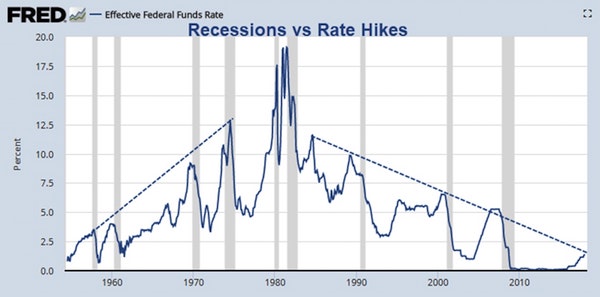

As noted earlier, new home sales were down 33.3% in the northeast. Pending home sales feel by 9% there.
• US January Pending Home Sales Crash Most Since 2010 (ZH)
After New- and Existing-Home-Sales have already disappointed, Pending Home-Sales just collapsed too (to the lowest since Oct 2014) to confirm January was a bloodbath for the real estate market. Pending Home Sales plunged 4.7% in January (massively below the 0.5% expected rise in sales) – this is the biggest drop since May 2010. Year-over-year Pending home sales are down 1.7%. Purchases fell 9% in the Northeast, 6.6% in the Midwest, 3.9% in the South and 1.2% in the West.
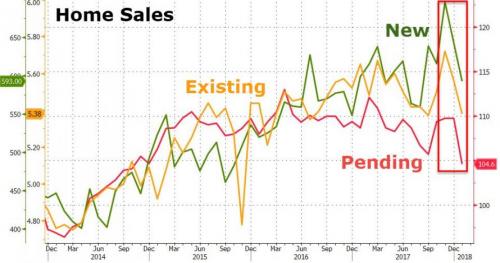
NAR is desperate to convince home-buyers and sellers that this is nothing but an inventory issue, but it is affordability that is the real driver here. “There’s little doubt last month’s retreat in contract signings occurred because of woefully low supply levels and the sudden increase in mortgage rates,” Lawrence Yun, NAR’s chief economist, said in a statement. “With the cost of buying a home getting more expensive and not enough inventory, some prospective buyers are either waiting until listings increase come spring or now having to delay their search entirely to save up for a larger down payment.” So, will higher rates break housing market momentum? The following chart suggest ‘yes’ – that surge in rates will have a direct impact on home sales (or prices will be forced to adjust lower) as affordability collapses…
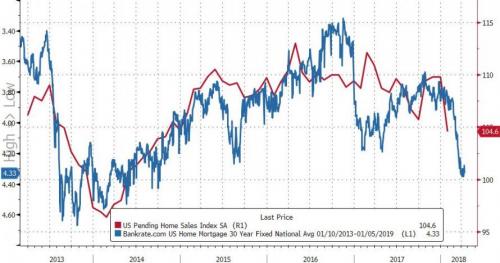
And Homebuilder stocks are starting to look a lot less invincible…
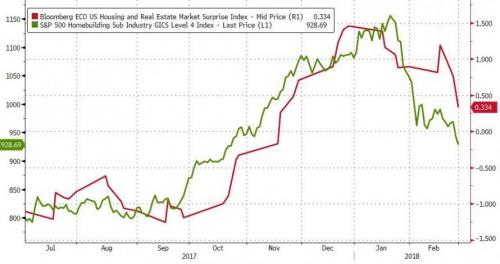
As Bloomberg notes, economists consider pending sales a leading indicator because they track contract signings; purchases of existing homes are tabulated when a deal closes, typically a month or two later.

Something for everyone. Useless.
• Hawk Or Dove? Fed’s Powell Showed Markets Both Sides In Debut (R.)
Financial markets barely batted an eye on Tuesday when Jerome Powell’s first public statement as Federal Reserve chief saw daylight, interpreting it as a steady-handed commitment to the U.S. central bank’s policy of gradual interest rate increases. The calm evaporated about a couple of hours later, at 10:42 a.m. EST, when Powell, testifying before a U.S. House of Representatives committee, struck a bullish, and personal, tone on the strength of the economy. U.S. bond yields jumped as investors raised their bets for four rate increases this year, rather than the three that Fed policymakers projected in late December, and began asking one key question: Is a hawk or a dove now running the Fed?
“The message coming from the written portion of the testimony did not signal any change,” analysts from Barclays wrote on Tuesday, drawing a contrast with Powell’s live remarks that “point to a risk of a steeper policy rate path.” Fed policymakers consider their public statements an important tool in shaping public perceptions and, in doing so, making monetary policy more effective. Fed chiefs try to avoid off-the-cuff remarks that cause impromptu repricing, preferring to hew close to their job of representing the views of the Fed’s rate-setting committee and avoiding disclosing much about their personal opinions. Veteran Fed analysts were split over whether Powell had broken that unwritten rule in his remarks, which came just weeks after he took over from Janet Yellen.
“The tone of the testimony was definitely NOT hawkish,” said Cornerstone Macro economist and former Fed staffer Roberto Perli, who emphasized Powell’s written comments might be read as a willingness to allow the economy to run hot in order to boost inflation to the Fed’s 2% target on a sustained basis. “Powell more confident on growth, putting 2018 dots in play,” is how JP Morgan’s Michael Feroli summed up the day, referring to the quarterly “dot plot” of projected interest rates that Fed policymakers submit. Feroli argued that Powell’s “modestly hawkish” appearance in Congress strengthened the chance that policymakers’ rate outlook would rise when the central bank issues its next set of economic projections next month.

Xi advocating against protectionism is a keeper.
• Trump Says US Will Use “All Available Tools” To Pressure China On Trade (BBG)
President Donald Trump is warning the U.S. will use “all available tools” to prevent China’s state-driven economic model from undermining global competition, the latest warning to Beijing as America readies a host of trade actions. China hasn’t lived up to the promises of economic reforms it made when it joined the World Trade Organization in 2001, and actually appears to be moving further away from “market principles” in recent years, according to the president’s annual report to Congress on his trade-policy agenda. China’s “statist” policies are causing a “dramatic misallocation” of global resources that is leaving all countries poorer than they should be, said the report. Chinese President Xi Jinping has dispatched one of his top economic advisers, Liu He, this week to Washington to meet with senior administration officials amid signs of growing tension between the world’s two biggest economies.
“China is free to pursue whatever trade policy it prefers. But the United States, as a sovereign nation, is free to respond,” according to the report, which is prepared by the U.S. Trade Representative’s office. Xi has called for countries to avoid protectionism and stick to the current path of globalization. At the same time, Chinese officials are weighing raising tariffs on U.S. soybeans as tensions escalate. Trump’s warning comes as his administration considers a range of actions either directly aimed at China, or that could impact the Asian power. The president is weighing several options for curbing imports of steel and aluminum, and Trump has told confidants he’s considering a global tariff on steel of 24%, the most punitive alternative recommended by his officials. The administration is ready to act unilaterally if necessary to fight unfair trading practices, according to trade report.

Well, it did get them the Olympics…
• South Korea Cuts 68-Hour Working Week (G.)
Employees in one of the most overworked countries in Asia are about to get a break after South Korea passed a bill to reduce the typical work week in an effort to improve quality of life and boost employment. South Korea’s National Assembly overwhelmingly passed the law which cut the maximum weekly work hours to 52, down from 68. The law comes into force in July and will apply to large companies before being rolled out to smaller businesses. The cut was a campaign promise by President Moon Jae-in, who also secured a 16% increase in the minimum wage this year. The law faced opposition from businesses but was seen as necessary to improve living standards, create more jobs and boost productivity. It is also aimed at increasing the country’s birth rate, which hit record lows last year.
As South Korea’s economy boomed in the 80s and 90s, a workaholic culture took hold and the birth rate plummeted. Chung Hyun-back, the gender equality and family minister, has called the country’s working hours “inhumanely long” and said they were a factor in the South’s rapidly ageing society. South Koreans workers have some of the longest weeks in the developing world, behind only Mexico, according to data from the Organisation for Economic Co-operation and Development. The group of mostly developed economies does not include countries such as China and India, and developing countries tend to work more. But South Koreans still work about 400 more hours a year compared with workers in the UK and Australia, about 10 additional standard work weeks, despite having relatively similar average incomes.

Just as she tries to strike a defiant pose…
• John Major Tears Into Theresa May’s ‘Grand Folly’ Brexit Strategy (Ind.)
Former Conservative leader John Major has launched a devastating attack on Theresa May’s approach to Brexit, just 48 hours before the Prime Minister sets out her plans for future relations with the EU. In a significant intervention, Mr Major tore into Ms May’s negotiating red lines as “bad politics” and “grand folly” dictated by “ultra Brexiteers”. He demanded MPs be freed from the party whip and allowed to vote with their conscience on her final deal, and said Britain may need a second referendum to avoid years of damaging rows over Brexit. His explosive speech sparked a ferocious backlash from Tories that back hard Brexit, with one saying his arguments were “grubbing around in the weeds”.
The surgically timed intervention comes as Ms May prepares to reveal the final text of her next big Brexit speech to the Cabinet, before meeting European Council president Donald Tusk in Downing Street on Thursday. Mr Major’s intervention also appears to have been choreographed with another speech from ex-prime minister Tony Blair in Brussels on Thursday, in which the ex-Labour leader will address European politicians on Brexit. When the ex-Tory leader stood to make his speech on Wednesday, Ms May had already locked horns with Brussels negotiators who had in the morning published what she called an “unacceptable” draft withdrawal agreement.
Despite Ms May having repeatedly claimed she settled the withdrawal agreement last year, she argued in the Commons that a new draft had crossed her Brexit red lines. It was those very “red lines” that Mr Major took aim at when he began talking in London minutes later, claiming they had “boxed” Ms May in. He said: “They are so tilted to ultra-Brexit opinion, even the Cabinet cannot agree them – and a majority in both Houses of Parliament oppose them. “If maintained in full, it will be impossible to reach a favourable trade outcome.”

The western press will simply continue to claim that Russia’s the aggressor, not NATO or the US. Case solved.
• Russia Says US Is Training Europe To Use Nuclear Weapons Against It (CNBC)
Russian Foreign Minister Sergei Lavrov said Wednesday that the U.S. was still deploying “strategic arms” in Europe and was training European countries to use nuclear weapons, violating a major nuclear arms agreement called the Non-Proliferation Treaty (NPT). Lavrov said that nuclear disarmament was impossible without taking into account factors which destabilize “strategic stability and international security today,” including, he said, “the deployment of a global anti-missile system” and “the deployment of U.S. strategic arms in Europe and the continuing destabilizing practice of ‘joint nuclear missions,’ as they call them.” “As we all know, these nuclear missions violate the Non-Proliferation Treaty and non-nuclear states plan and take part in the U.S. exercises and learn how to use the nuclear weapons,” he said.
For its part, he said Russia had reduced its nuclear arsenal by 85% compared to the Cold War era. The Russian Foreign Ministry has complained about what it calls “joint nuclear missions” and says the U.S. has many nuclear weapons located in Europe. It also says the U.S. is training European countries to use these weapons. Last April, the foreign ministry issued a statement in which it said that “Washington’s approach to compliance with its obligations under the Treaty on the Non-Proliferation of Nuclear Weapons (NPT) is still of great concern. The U.S. and its non-nuclear NATO allies continue their nuclear skill training as part of the so-called “nuclear sharing”,” it said.

But Merkel wants her refugee treaty. Or she’s done.
• American Hellenic Institute Urges Trump To Condemn Turkish Aggression (K.)
The American Hellenic Institute (AHI) sent a letter to US President Donald J. Trump in the wake of acts of Turkish provocation and aggression in the eastern Mediterranean and broader region that have dire implications to American security interests. In the February 27 letter, AHI President Nick Larigakis requests President Trump to condemn strongly Turkish aggression and acts of provocations that have been directed at the United States, Greece, Cyprus, and international oil and gas companies – all of which have occurred in the month of February.
Larigakis cites: a Turkish coastguard vessel colliding with a stationary Greek coastguard vessel, the harassment of Italian oil company Eni’s surveying vessel by Turkish warships, which threatened to sink Eni’s surveying vessel because it was on its way to survey for energy resources in the exclusive economic zone of Cyprus; and Turkish President Erdogan’s threat of an “Ottoman slap” to United States military forces if they continued to partner with Syrian Kurds in Syria.
In addition, Larigakis raised the concern among NATO allies about Turkey’s purchase of four divisions of S-400 missiles from Russia and how it potentially subjects Turkey to US sanctions. “Turkey’s aggressive and provocative actions directed at the United States and U.S. allies, Greece and Cyprus, are overt, egregious and dangerous. I urge the administration to act to uphold the rule of law and to call on Turkey, the provocateur of these tensions, to cease and desist with its aggressive actions that are a threat to peace and stability and are not in the best interests of the United States,” Larigakis concludes.

Just about nobody has that kind of cash to withdraw anymore. Thanks a lot.
• Greece Loosens Capital Controls, Raises Cash Withdrawal Limit (R.)
Greece on Wednesday moved to ease capital restrictions imposed since the summer of 2015, raising the monthly limit of cash that can be withdrawn from bank accounts by 28%. Athens first imposed capital controls in July 2015 to stem a flight of cash from its banks at the height of a debt crisis which led to its third financial bailout since 2010. Based on a finance ministry decree published in the government’s gazette, individuals will be allowed to withdraw lump sums of up to 2,300 euros in cash per month from bank accounts from 1,800 euros currently, effective from March 1.

Just imagine the added job losses that come with this. And still, as I keep on saying, things can still only get worse from here.
• Greek Jan-Feb 2018 Retail Sales Down 8.8% y-o-y, Up To 20% In Cities (K.)
Retail sales in the first two months of the year were down some half a billion euros on the same period in 2017, as households were left with less spending money after their Christmas shopping and purchases made during the Black Friday promotional event at the end of November. According to a survey conducted by the Hellenic Confederation of Commerce and Enterprises (ESEE), retail turnover declined this past January and February by 8.8% compared to 2017. In absolute figures, this reduction translates into the loss of 484 million euros, with turnover up until Wednesday amounting to 5.02 billion, against 5.5 billion in January-February 2017.
In certain areas of the country the drop in sales turnover in the first two months of the year reached up to 40%, while out of Greece’s 65 traders’ associations, only one reported an increase from last year. In the cities of Athens and Thessaloniki, sales declined between 11 and 20% year-on-year. The ESEE survey showed that one in three enterprises offered discounts of between 21 and 40%, while two out of five offered discounts in excess of 40%.



